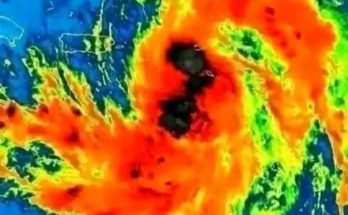The immigration directives issued by Trump raise concerns among immigrants, reflecting a sentiment prevalent in discussions surrounding this recent series of orders from the White House. In a decision that has elicited both support and concern, President Donald Trump has enacted multiple orders that empower additional federal agencies to apprehend and deport undocumented immigrants, significantly expanding the authority beyond the capabilities of Immigration and Customs Enforcement (ICE) alone.
The Bureau of Alcohol, Tobacco, Firearms and Explosives (ATF), the Drug Enforcement Administration (DEA), and the U.S. Marshals Service have been granted the authority to enforce immigration laws, akin to the roles of ICE and the FBI.
This decision aims to alleviate the substantial workload of ICE while increasing the number of immigration arrests nationwide. Currently, ICE is expected to detain between 1,200 and 1,500 individuals each day.
Nevertheless, as concerns regarding Trump’s immigration policies grow among immigrant communities, critics are questioning the availability of resources necessary to sustain such an extensive operation.
Intense Reactions on the Ground: Many individuals within immigrant communities experience heightened anxiety due to the threat of unexpected raids and the potential for family separation. Even minor rumors regarding enforcement actions can result in individuals opting to remain at home from work, delaying their children’s arrival at school, or forgoing medical appointments.
A farmworker from Kern County shared her experience of taking a day off following a Border Patrol operation—prior to Trump’s presidency—that seemed to target laborers.
However, with financial obligations and children to support, she ultimately returned to work despite her apprehensions.
These daily struggles illustrate how Trump’s immigration policies instill concern among immigrants in tangible ways, impacting their daily lives and mental health.
California, recognized for its sanctuary policies, is preparing for a confrontation with the federal government. Governor Gavin Newsom has moderated his direct criticisms of the president in an effort to obtain wildfire relief, while the legislature has allocated resources for legal and state protections for immigrant residents.
State Attorney General Rob Bonta also advocates for individuals to understand their rights and assures that local authorities are not compelled to collaborate with immigration agents. This situation recalls the legal battles from Trump’s previous presidency, indicating that despite the strong federal initiative, states retain significant authority in determining local enforcement.
Regardless of the outcome, Trump’s immigration directives instill concern among immigrants and their advocates, leaving numerous communities apprehensive about the future.



